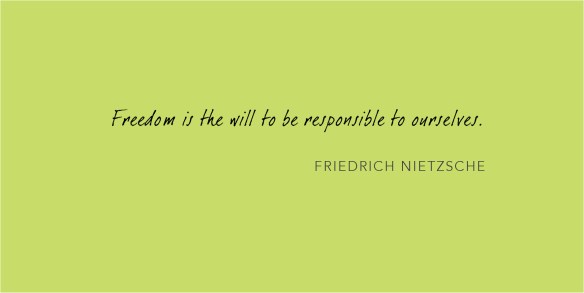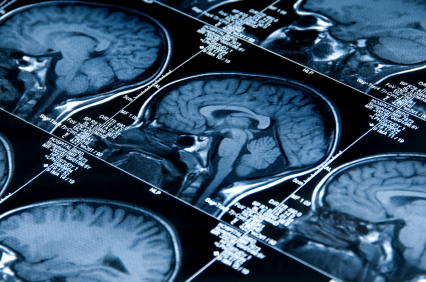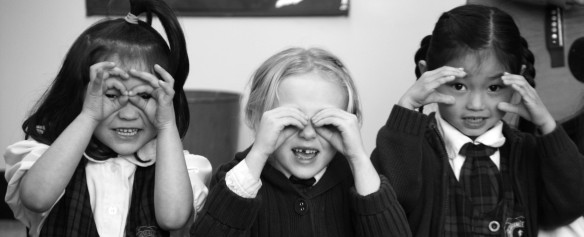
While reading some of Master Hua’s reflections, I came across this story:
There is a story about when the students from mainland China first came to Taiwan. Because they were fleeing for their lives, none of the students, except maybe one or two, remembered to bring their diplomas. When they applied for college in Taiwan, they were at a loss when asked for their diplomas. So they searched everywhere to find a sample diploma. When they found a real one, they forged copies. They submitted the counterfeit diplomas to the Department of Education, and were then allowed to take the entrance exams and enroll in college. However, when someone submitted his authentic diploma to the Department of Education, they thought it was false. They said, “Everyone else’s diploma is clean and well-kept. Why is yours all creased and torn up? You must have forged it and made it old and dirty-looking on purpose so that people wouldn’t be able to tell.” So they refused to accept it. All of you, think about this: the fake ones are considered real, and the real one was thought to be false.
-Master Hsuan Hua, from “The Traditions of the City of Ten Thousand Buddhas: Excerpts from the lectures of the Venerable Master Hua.”¹
Made me think.
What do we think is real today?
Is it really?
¹ In Memory of the Venerable Master Hsuan Hua. Vol I. Burlingame, CA: Buddhist Text Translation Society,1995. 152.

Nietzsche wrote that human history has been shaped by the power dynamic between the few who are part of the controlling “master” class, and the many “slaves” who are being controlled. He was convinced that this dynamic would never change by any action on the part of the master—why would those in power willingly give it up? The oppressed would have to rise up and change things for themselves.
Many idealistic teachers—myself included—come to the profession with a desire not just to educate but to help “empower” their students.
I’ve thought a lot about Nietzsche’s ideas as they relate to my experience and observations as a public school teacher. Many idealistic teachers—myself included—come to the profession with a desire not just to educate but to help “empower” their students. I think most of us would accept Nietzsche’s belief that ultimately, people must seize power for themselves; our role as teachers is to support that effort from the sidelines.
But when Nietzsche gets down to the gritty details of what it would actually take to change the existing power dynamic, he says some things that may be quite hard to swallow for today’s progressive idealists. He says the power imbalance perpetuates itself because the slave keeps himself a slave through his own state of mind. Read More …

Until Mount Etna speaks, no one will know
Which village on the mountain’s slopes
Will be the next to be destroyed by lava.
It’s said that every village on the mountain
Must take its turn, once in a century.
Material for building, though, is right at hand:
And once the lava cools and turns grey-black,
The people saw it into blocks
And reconstruct their village with what buried it.
Premium wines, it seems, are coaxed from grapes
Grown on these slopes. And so these colonists
Are stubborn, and they won’t be moved
From what they’re pleased to see as their own mountain.
Touring Sicily one spring, we stopped to see Mount Etna.
I’d been a bit reluctant, but our friends
Were keen on walking near the crater.
And so we drove up through the villages,
Up past the tree-line, to the lifeless wastes. Read More …

In his Discourse on Method (1637), René Descartes famously penned “Je pense donc je suis” (I think therefore I am), which became one of the bedrocks of modern Western philosophy. We are possessive of our thoughts (i.e. intellectual property). We strongly identify with, and generally assume, not only the supremacy, but also the primacy of our thinking mind. In fact, our democratic political system and the current market economy assume that voters and consumers make their political and economic choices based on careful and rational evaluation of all the relevant factors on issues to protect and promote their self-interest. Recent election results in the United States and the slumping economy following the financial bust in 2008 offer hints that this assumption might need reexamination, and that emotions perhaps play an equally or more important role in driving our decisions.
Alzheimer’s disease is the most common type of dementia that occurs in people older than 65 years of age. Despite strong efforts in medicine and growing societal awareness about the disease, Alzheimer’s currently has no known cure….
Emotion certainly plays a much more important role in driving the lives of Alzheimer’s patients, as the disease primarily attacks their cognitive faculties. Alzheimer’s disease is the most common type of dementia that occurs in people older than 65 years of age. Despite strong efforts in medicine and growing societal awareness about the disease, Alzheimer’s currently has no known cure, and patients require long-term and skilled nursing care. The patients’ declining cognitive ability—with symptoms ranging from short- and long-term memory loss, inability to recognize even the closest family members, to language breakdown—their emotional reactions—which include confusion, irritability, and aggression—as well as their altering mental states make caring for Alzheimer’s patients difficult and draining. With the constant breaking down of mental structures and loss of memory, how does one help, communicate with, and regulate behaviors of someone in this state? Read More …

How do we develop a sense of open awareness from which we can observe our thoughts, emotions and habits from a neutral, clear place? How can we recognize what’s really going on within us and understand the causes and conditions that form the basis of our experience, and in turn, our future context of meaning?
We move through time thought by thought, emotion to emotion, in constant habituation.
As long as our consciousness is consumed and overtaken by thoughts and emotions, our essential awareness is focused and limited. We move through time thought by thought, emotion to emotion, in constant habituation. Breaking this endless process requires us to see through the habituation. We must gain the power of resistance to habituation. Freedom of mind and fundamental change can only be obtained by not being moved by thoughts and emotions. Read More …

Before taking Doug Powers’ class on Buddhism and Postmodernity, I had only a vague idea of what people meant by “postmodernism.” I knew it had something to do with deconstruction, theory, and meta-narratives—but I wasn’t entirely sure what all that was about either, and frankly I wasn’t particularly interested. I was pretty certain it was a bunch of ivory tower jargon that people threw around mainly to show off, and I didn’t see much point in learning to understand it.
As I see now, my disinterest in these ideas was kind of ironic, because in so many ways, I am the product of this postmodern context. Doug’s class opened my eyes to larger cultural trends that have affected me all my life. In particular, it shifted my perspective on what it takes to work for justice and equality in this world.
Postmodernism, among other things, is a relentless attack on any idea that claims to apply universally to all human beings. Read More …

Last week, I had the honor of joining a class with 2nd and 3rd graders at the Instilling Goodness Elementary School. They had put on a bake sale earlier in the day and wanted to donate their earnings towards our high school’s Community Service Trip to Mexico over spring break this April.
Gathered in a circle, the girls took turns passing around the envelope of their earnings—sixty-two dollars in total. As the envelope went around, each child made a wish for the people in Mexico who would receive their donation. I sat there listening and found myself stunned. They had completely disarmed me with the level of maturity, awareness, and genuine kindness behind their words.
Things like: Read More …
“Far away in the heavenly abode of the great god Indra, there is a wonderful net that has been hung by some cunning artificer in such a manner that it stretches out infinitely in all directions. In accordance with the extravagant tastes of deities, the artificer has hung a single glittering jewel in each “eye” of the net, and since the net itself is infinite in all dimensions, the jewels are infinite in number. There hang the jewels, glittering like stars of the first magnitude, a wonderful sight to behold. If we now arbitrarily select one of these jewels for inspection and look closely at it, we will discover that in its polished surface there are reflected all the other jewels in the net, infinite in number. Not only that, but each of the jewels reflected in this one jewel is also reflecting all the other jewels, so that there is an infinite reflecting process occurring.” ¹
– Avatamsaka Sutra
In late December 2010, a municipal bureaucrat in Sidi Bouzid, Tunisia cursed, perhaps slapped an unlicensed fruit vendor and confiscated the vendor’s scale. The young fruit vendor, Mohamed Bouazizi—perhaps feeling hopeless after losing an essential piece of equipment for his livelihood for the third time—spent his remaining assets on a canister of gasoline, then doused and set himself on fire at the town’s main square. The event generated widespread outrage, beyond just the working class, and sparked persistent and large-scale protests that eventually ousted Zine El Abidine Ben Ali when he fled the country on January 14, 2011, 10 days after Bouazizi died from his injuries. Ben Ali’s ouster was just the beginning, as similar protests broke out in other Middle Eastern/Northern African countries such as Algeria, Egypt, Yemen, Bahrain, and Libya. The civil movement in Egypt led to the end of the 30-year rule of President Hosni Mubarak, whereas the unrest in Libya has escalated into a full-out civil war with participation from Western Powers.
However, poverty and social and economic injustice have persisted in this region for decades. So why now?
The waves of civil unrest in these countries are perhaps not so surprising, given the pervasive poverty in these countries. Taking Egypt for example, three quarters of the 84 million people in the most populous nation in Africa live in apartments (instead of houses), and overall, the country has more people than rooms. More than one third of all Egyptians live on less than $2 a day. The country’s sizable youth population is largely unemployed and face bleak prospects for landing a job. However, poverty and social and economic injustice have persisted in this region for decades. So why now? Read More …

 SHARE
SHARE EMAIL
EMAIL COMMENT7 comments
COMMENT7 comments 






